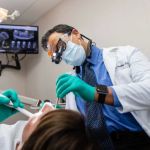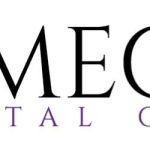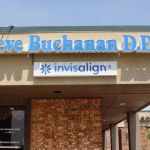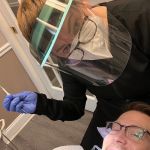How Much Does an NHS Dentist Check-Up Cost?
When I first moved to the UK, I was a bit confused about how the NHS system worked for dental care. Back home, in the US, dental check-ups can be quite expensive, and insurance doesn’t always cover everything. So, when I needed to schedule a dental check-up here, I started wondering, "How much does an NHS dentist check-up cost?" In this article, I’ll share my experience, break down the costs, and explain what you can expect when visiting an NHS dentist for a routine check-up.
1. Understanding NHS Dentistry
The National Health Service (NHS) provides affordable dental care to UK residents, and I found it to be a much more cost-effective option compared to private dental practices. However, it’s important to note that NHS dental care is not free; there are still charges involved, but they are generally much lower than private dentistry fees. NHS dental services are categorized into three different bands, and the cost depends on which band your treatment falls into.
When I went for my check-up, I was placed under Band 1, which is the lowest band for routine dental exams. Band 1 covers basic services such as a consultation, examination, and any necessary advice. It’s important to keep in mind that if your dentist determines you need further treatment, such as fillings, X-rays, or a more detailed procedure, the cost will increase based on the treatment you require.
2. The Cost of an NHS Check-Up
As of now, the cost for a standard NHS dental check-up falls under Band 1. I paid £23.80 for my routine examination and any necessary advice from the dentist. This price is set by the NHS and is the same across England. The check-up includes a consultation, an examination of your teeth, and a discussion about your oral health. If your dentist spots any issues, such as tooth decay or gum disease, they may recommend further treatment, which could be priced under Band 2 or Band 3 depending on the severity of the treatment.
It’s worth mentioning that the NHS offers a sliding scale for dental charges, so if you're eligible for certain benefits or if you’re under the age of 18, over 60, or pregnant, you might qualify for free dental check-ups or reduced rates. In my case, as a standard patient, the £23.80 fee seemed reasonable, especially considering the quality of care I received.
3. Additional Costs for Further Treatments
During my check-up, I was advised that I would need a small filling. This was when I discovered that while a basic check-up falls under Band 1, fillings and other treatments fall into higher bands. Band 2 covers treatments such as fillings, extractions, and other restorative work. For instance, I paid £65.20 for my filling, which was part of Band 2.
For more complex dental procedures, such as crowns, dentures, and bridges, the costs are covered under Band 3, which can go up to £282.80. The good news is that the cost is still significantly lower than what you would pay for similar treatments at a private practice.
4. How NHS Fees Compare to Private Dental Care
One of the biggest differences between NHS and private dental care is, of course, the cost. When I moved to the UK, I had my fair share of dental check-ups and treatments in the US, where the costs could easily run into the hundreds of dollars, even for basic procedures. For example, in the US, a standard dental check-up can cost anywhere from $100 to $200, depending on the location and whether insurance covers it. Treatments like fillings or crowns can easily exceed $1,000, and without insurance, this becomes an expensive out-of-pocket expense.
In contrast, NHS dental care is a more affordable option. Even with the additional charges for fillings and other treatments, the total cost is far lower compared to private practices. The NHS also caps the fees for all dental services, which gives a sense of predictability when budgeting for dental care. If you’re planning to visit an NHS dentist, the costs will generally be more affordable, but it’s important to understand the different bands and how they apply to the treatment you need.
5. What’s Included in an NHS Dental Check-Up?
During my NHS dental check-up, I was impressed by how thorough the dentist was, even though the cost was lower than what I had experienced back in the US. Here’s what you can expect from a standard check-up:
- Consultation and Examination: The dentist will examine your teeth, gums, and mouth for any signs of decay, infection, or other issues.
- Oral Health Advice: If the dentist spots any potential issues or if you have any questions about oral health, they will give you advice on how to improve or maintain your dental hygiene.
- X-Rays (If Necessary): If required, the dentist may take X-rays to get a better view of your teeth and detect any underlying problems not visible to the naked eye.
For me, the experience was quick and efficient. I felt that the dentist genuinely cared about my oral health and took the time to explain everything to me. It’s definitely worth noting that the NHS check-up fee is designed to cover only the basics, so additional treatments like fillings or more advanced procedures will come at an extra cost.
6. How to Find an NHS Dentist and Book an Appointment
Finding an NHS dentist can sometimes be a challenge, especially if you live in a highly populated area where demand is high. I found that the easiest way to find an NHS dentist was by using the NHS website’s "Find a Dentist" tool. It allows you to search for local practices that offer NHS services, and you can often book an appointment online or by calling the practice directly. It’s worth noting that many NHS dentists may have waiting lists, so it’s a good idea to book an appointment in advance if possible.
Another tip is to check whether the dental practice you’re interested in is currently accepting new NHS patients, as some may have full waiting lists. Once you’ve found a suitable dentist, simply call or book online to schedule your check-up. Remember that appointments may be more limited during busy times, such as school holidays, so it’s always best to plan ahead.
In conclusion, an NHS dentist check-up offers excellent value for money. With reasonable fees, professional care, and the added benefit of being part of a national health system, it’s a great option for those seeking quality dental care without breaking the bank. Whether you’re looking for a routine check-up or need more extensive treatment, the NHS provides a cost-effective way to maintain your dental health.
For more information or to book your next dental check-up, visit Dentistry Toothtruth for expert recommendations on the best dental care options available.







 Sugar Hill Family Dental4.0 (83 review)
Sugar Hill Family Dental4.0 (83 review) Cazes Family Dentistry LLC4.0 (61 review)
Cazes Family Dentistry LLC4.0 (61 review) Omega Dental Care4.0 (74 review)
Omega Dental Care4.0 (74 review) Dr. Stephen M. Buchanan, DDS3.0 (10 review)
Dr. Stephen M. Buchanan, DDS3.0 (10 review) Samson Wahl & Associates5.0 (6 review)
Samson Wahl & Associates5.0 (6 review) Fair Lawn Periodontics & Dental Implants4.0 (191 review)
Fair Lawn Periodontics & Dental Implants4.0 (191 review) The Importance of Oral Health Education During Pregnancy for a Healthy Pregnancy
The Importance of Oral Health Education During Pregnancy for a Healthy Pregnancy Best Tips for Brushing Your Teeth Properly for Healthy Gums: Essential Techniques for Oral Health
Best Tips for Brushing Your Teeth Properly for Healthy Gums: Essential Techniques for Oral Health Why Skipping Dental Checkups Can Lead to Bigger Oral Health Problems
Why Skipping Dental Checkups Can Lead to Bigger Oral Health Problems Advantages of Porcelain Dental Restorations
Advantages of Porcelain Dental Restorations How Can Diabetes Cause Tooth and Gum Problems? Preventing and Managing Oral Health Issues
How Can Diabetes Cause Tooth and Gum Problems? Preventing and Managing Oral Health Issues Healthy Habits for Promoting Good Oral Health and Hygiene: Tips for a Healthy Smile
Healthy Habits for Promoting Good Oral Health and Hygiene: Tips for a Healthy Smile